Intro
Stay hydrated with 7 essential tips, boosting water intake, and healthy fluid balance, preventing dehydration, and improving overall well-being through proper hydration habits.
Staying hydrated is one of the most essential aspects of maintaining a healthy lifestyle. Our bodies are composed of approximately 60% water, and it plays a crucial role in various bodily functions, such as regulating body temperature, transporting nutrients, and removing waste products. Despite its importance, many individuals fail to drink enough water, leading to dehydration and related health issues. In this article, we will explore the significance of hydration and provide valuable tips on how to stay hydrated.
Proper hydration is vital for physical performance, cognitive function, and overall well-being. Even mild dehydration can cause fatigue, headaches, and difficulty concentrating, while severe dehydration can lead to serious health complications, such as heat stroke, kidney damage, and even death. Furthermore, hydration affects our skin, hair, and nails, making it essential for maintaining a healthy and youthful appearance. With the numerous benefits of hydration in mind, it is crucial to develop habits that promote adequate water intake.
The human body loses water through various means, including urination, sweating, and breathing. To replenish lost fluids, it is recommended to drink at least eight glasses of water per day. However, individual hydration needs may vary depending on factors such as age, sex, weight, activity level, and climate. For instance, athletes and individuals living in hot and humid environments may require more water to stay hydrated. Understanding personal hydration needs is essential for maintaining optimal health and preventing dehydration-related issues.
Understanding Hydration Needs
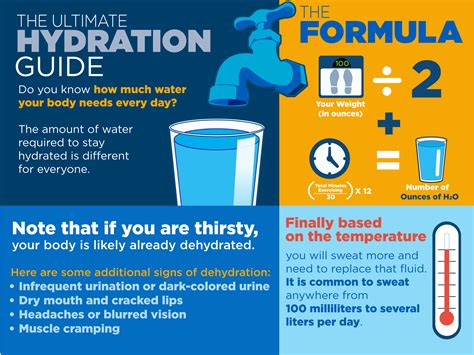
Benefits of Hydration
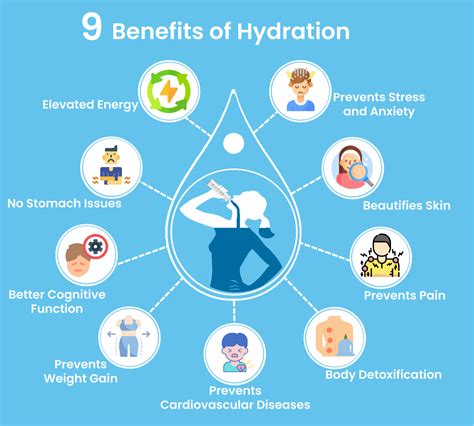
Physical Performance
Proper hydration is essential for physical performance, as it helps regulate body temperature, transport nutrients, and remove waste products. Even mild dehydration can cause significant declines in athletic performance, leading to decreased endurance, strength, and speed. Furthermore, dehydration can increase the risk of injuries, such as muscle strains and heat exhaustion, making it crucial for athletes to stay hydrated. By drinking enough water, individuals can maintain optimal physical performance, reduce the risk of injuries, and achieve their fitness goals.Cognitive Function
Hydration also plays a crucial role in cognitive function, as it helps maintain focus, attention, and memory. Even mild dehydration can cause difficulties concentrating, making it challenging to perform daily tasks and make decisions. Furthermore, dehydration can lead to mood disturbances, such as irritability and anxiety, making it essential to stay hydrated for optimal mental health. By drinking enough water, individuals can maintain sharp cognitive function, improve their mood, and enjoy better overall well-being.7 Tips to Stay Hydrated
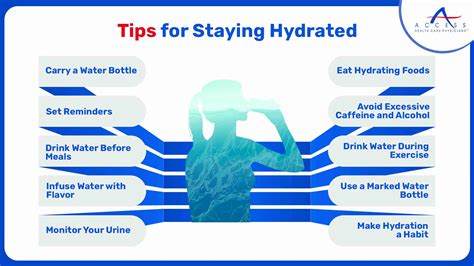
Monitor Urine Output
Monitoring urine output is an effective way to determine if you are drinking enough water. If your urine is pale yellow or clear, it indicates that you are hydrated. However, if your urine is dark yellow or amber-colored, it may be a sign that you need to drink more water. Additionally, paying attention to the frequency of urination can help you determine if you are drinking enough water. If you are not urinating regularly, it may be a sign that you need to increase your water intake.Common Hydration Mistakes
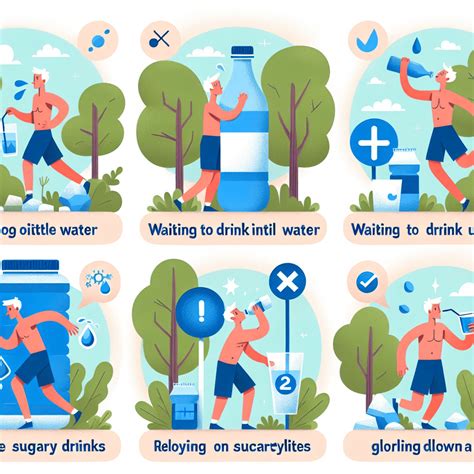
Relying on Sugary Drinks
Relying on sugary drinks for hydration is a common mistake that can lead to dehydration. While sugary drinks may provide temporary hydration, they can also cause a rapid increase in blood sugar levels, leading to an increase in urine production and dehydration. Furthermore, sugary drinks often contain caffeine and other diuretics that can exacerbate dehydration. By avoiding sugary drinks and opting for water instead, individuals can maintain optimal hydration and reduce the risk of related health issues.Hydration and Exercise
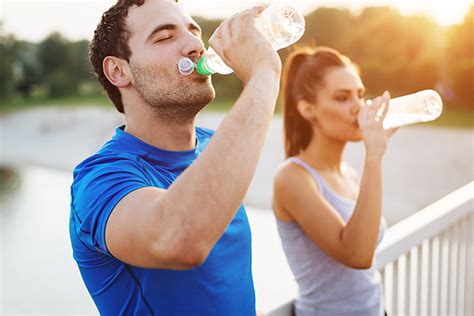
Hydration Strategies for Athletes
Athletes require specialized hydration strategies to maintain optimal performance and reduce the risk of injuries. Some of these strategies include: * Drinking water or sports drinks before, during, and after exercise * Monitoring urine output to ensure adequate hydration * Avoiding sugary drinks and caffeine * Eating hydrating foods, such as bananas and avocados * Adjusting water intake based on activity level, climate, and individual needsConclusion and Final Thoughts

We invite you to share your thoughts and experiences with hydration in the comments below. How do you stay hydrated throughout the day? What strategies have you found to be most effective? Share this article with your friends and family to help them understand the importance of hydration and develop healthy habits.
What is the recommended daily water intake?
+The recommended daily water intake is at least eight glasses of water per day. However, individual hydration needs may vary depending on factors such as age, sex, weight, activity level, and climate.
How can I determine if I am drinking enough water?
+You can determine if you are drinking enough water by monitoring your urine output. If your urine is pale yellow or clear, it indicates that you are hydrated. However, if your urine is dark yellow or amber-colored, it may be a sign that you need to drink more water.
What are the benefits of hydration?
+The benefits of hydration include improved physical performance, enhanced cognitive function, and better overall health. Proper hydration can also help maintain healthy skin, hair, and nails, making it essential for individuals who want to look and feel their best.
Can I rely on sugary drinks for hydration?
+No, it is not recommended to rely on sugary drinks for hydration. While sugary drinks may provide temporary hydration, they can also cause a rapid increase in blood sugar levels, leading to an increase in urine production and dehydration. Additionally, sugary drinks often contain caffeine and other diuretics that can exacerbate dehydration.
How can I stay hydrated during exercise?
+You can stay hydrated during exercise by drinking water or sports drinks before, during, and after exercise. It is also essential to monitor your urine output and adjust your water intake based on your individual needs and the intensity and duration of your workout.
